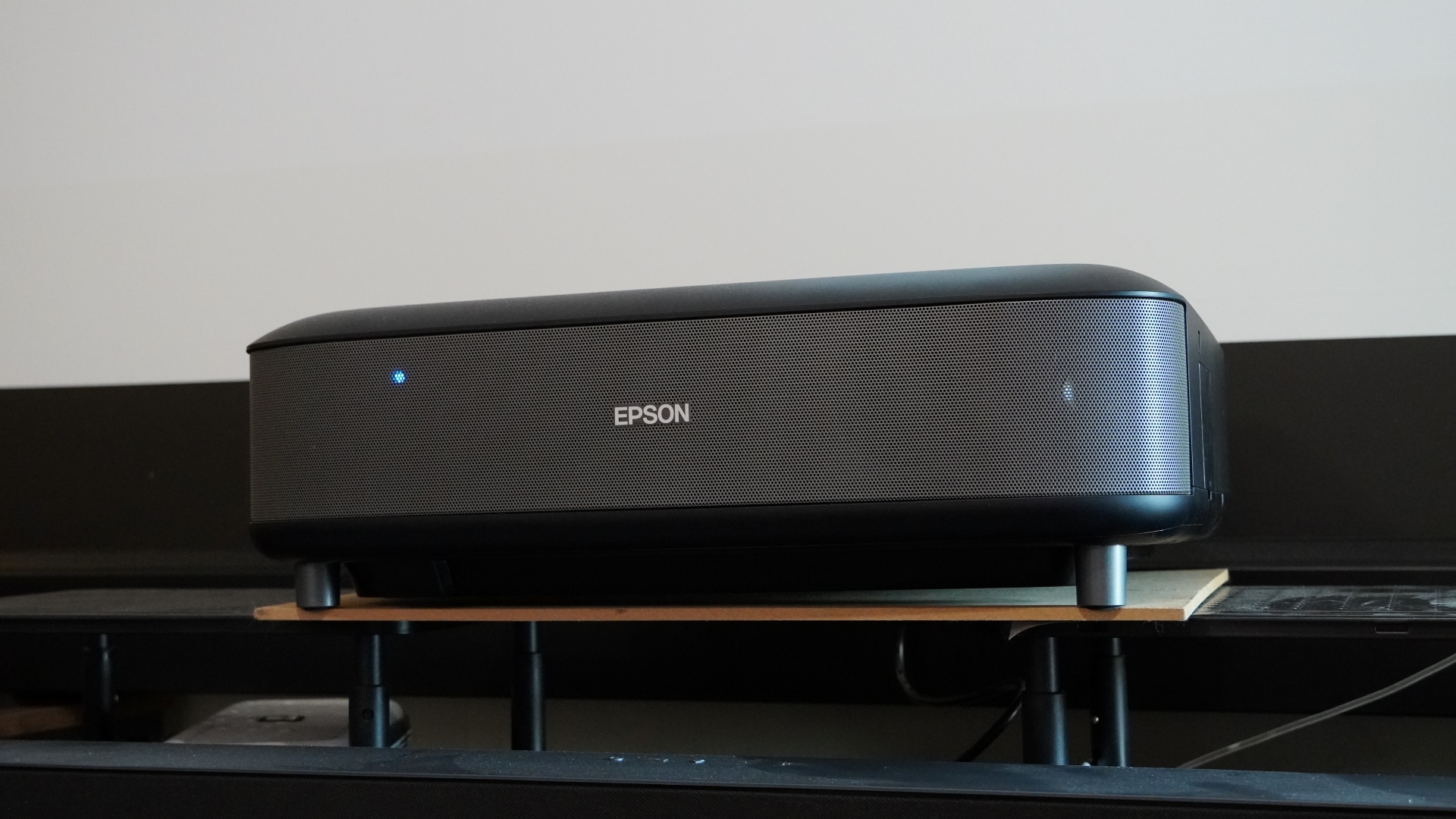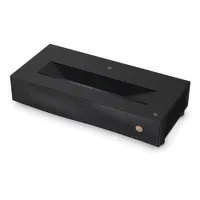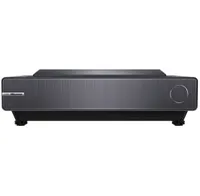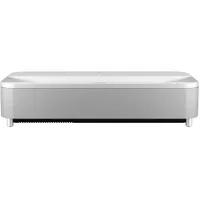TechRadar Verdict
The Epson EpiqVision Ultra LS650 is a powerful ultra-short-throw projector that doesn’t get everything right, but it does provide exceptional brightness for the price and has a good built-in speaker system.
Pros
- +
Exceptionally bright
- +
Potent built-in speakers
- +
Good overall picture quality
Cons
- -
Unreliable Android TV OS
- -
High fan noise at maximum brightness
- -
Limited HDMI ports
Why you can trust TechRadar
Epson EpiqVision Ultra LS650: one-minute review
The Epson EpiqVision Ultra LS650 is a recent mid-range entrant on the ultra short throw projector scene, and it strikes a reasonable balance of performance and features. Its key strength is the brightness delivered by its laser light source combined with Epson’s 3LCD technology. Even when viewing in a bright room, the Epson LS650 is able to provide clear visuals for all sorts of content, making it a more viable option than many other examples of the best ultra short throw projectors for those who don’t have an easy way to dim their viewing space. The potent built-in speaker system is also a good match for the large image the projector can produce.
There’s a regrettable lack of HDMI ports, with just two, and that limitation is further compounded by an unreliable – verging on faulty – Android TV system for streaming that will more or less require you to use an external video source for most viewing. But for simple home theaters, the Epson EpiqVision Ultra LS650 is mostly up to the task, and the brightness it provides for the price will make it a reasonable choice for many people.
Epson EpiqVision Ultra LS650 review: price and release date
- Release date: November 2023
- MSRP: $2,799 (around £2,195 / AU$4,165)
The Epson EpiqVision Ultra LS650 is available now for $2,799 (around £2,195 / AU$4,165), though Its price had previously seen discounts to as low as $2,499 during the 2023 holiday selling season.

Epson EpiqVision Ultra LS650 review: Specs
| Screen sizes supported: | 60-120 inches |
| Brightness (specified): | 3,600 lumens |
| HDR support: | HDR10, HLG |
| Optical technology: | Laser 3LCD |
| Smart TV: | Android TV |
| Connections: | 2x HDMI 2.0 (1 with eARC), Ethernet, USB type-B (service port), 3x USB type-A, optical digital audio out |
| Dimensions: | 6.2 x 18.4 x 15.7 inches (H x W x D) |
| Weight: | 16.3 pounds |
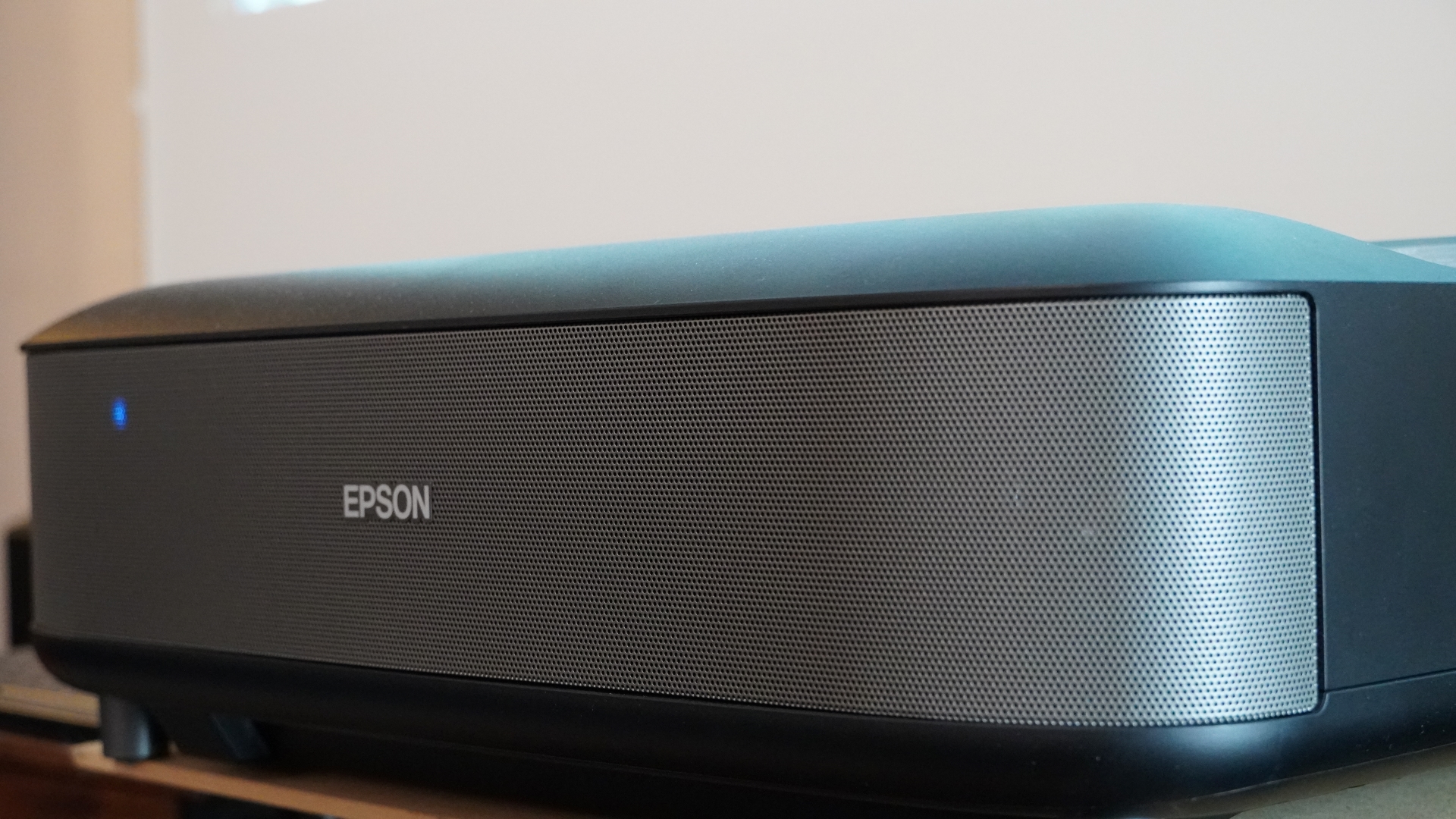
Epson EpiqVision Ultra LS650 review: design and features
- Sluggish, almost useless Android TV system
- Good speakers in a convenient, if bland, design
- Just two HDMI ports can be limiting
The Epson EpiqVision Ultra LS650 is the smaller sibling to the Epson LS800 I tested last year, and in many ways it behaves as such. It’s smaller and lighter, and boasts lower brightness. Fortunately it’s still very bright, and it has powerful speakers that can easily pass muster in a 200-square-foot room. The design is a bit less elegant than the LS800’s, though, with the LS650 looking more like a piece of utilitarian technology. Both black and white color options are available.
Despite its reduced width compared to its big brother, the Epson LS650 has a deep design that may require extra space on a media stand. Even then, with the projector’s 0.26:1 throw ratio, the LS650 may need to sit around a foot out from your wall or screen to deliver the large image it’s best suited to. Wherever you set it, getting it into focus is quick and easy with a dial along the right side of the chassis. There’s a cover for that dial, too, so once it’s in position you can keep it protected from accidental adjustments.
The rear of the projector has only two HDMI 2.0 ports, with one also serving up eARC for connections to an audio system. If you plan to use eARC, it leaves you with just one free port, and that may mean a lot of juggling of connections if you have game consoles, streaming sticks, or any other media sources. Optical digital is an alternative for audio output, but it doesn’t serve up all the audio quality advantages of HDMI eARC.
While the Epson LS650 uses Android TV for streaming and navigating system menus, it should only be relied on for the latter. There’s generally a delay after startup before the system is responsive, and navigating streaming apps is painfully slow. From there, I found that it invariably runs into an issue where the video begins to sputter terribly and occasionally freeze entirely. The issue was basically non-stop until playback stops, and there’s no quick out as the system’s responsiveness takes a dive in this scenario. Plan on pairing this projector with a separate streaming stick.
Sign up for breaking news, reviews, opinion, top tech deals, and more.
- Design and features score: 3/5

Epson EpiqVision Ultra LS650 review: picture quality
- Brightness is a match for well-lit rooms
- Color could use improvement
Like the LS800, the Epson LS650 is exceptionally bright. It may not be as bright as the higher-tier model, but it’s much brighter than a lot of its ultra short throw projector competition. This gives it a considerable leg up when it comes to viewing in rooms with overhead lights or with daylight spilling in through the windows. Darker content doesn’t hold up as well to the daylight, but bright cartoons and sitcoms display wonderfully even in a bright room thanks to the Epson LS650’s powerful laser light source.
The Expanse is a show that basks in the darkness. There are a great many scenes that not only take place in the black of space but the show also has a moody aesthetic that casts a lot of images in darker tones. Thanks to the Epson LS650’s high brightness, even those dark scenes benefitted from high contrast that made them easy to watch without needing to completely black out my room.
The Epson LS650’s brightness does come with a cost, though. It may beat many of the triple-laser competitors it goes up against in terms of light output, but its color is not as rich as on some triple-laser DLP systems like the Hisense PX2-Pro. Plenty of content doesn’t feel left behind, such as sitcoms and non-HDR shows and movies, but when it comes to 4K content with HDR that takes advantage of wider color gamuts, the LS650 simply doesn’t reach as far to render vibrant colors. A prime example was Avatar: The Way of Water’s Na’vi, which came through with just a little less poignancy than on the Hisense PX2-Pro.
Another cost to the brightness is fan noise. The Epson LS650 is plenty bright even without maxing out, but when pushing the brightness above about 80%, the projector kicks its fans into high gear, with an accompanying whiney sound. Short of watching shows with consistent, booming music, you’re going to hear the fans running with the projector at max brightness.
Ultimately, the Epson LS650 delivers a good visual presentation, but it falls short of being excellent. A number of controls are provided to adjust the image, though the settings aren’t quite as convenient as many others, especially with only a small handful of presets. For instance, there’s no specific Game picture mode, so it can take a bit of time and guesswork to adjust settings such that input latency is minimized. There’s also no Filmmaker Mode – a disappointing omission for movie buffs – though the Cinema preset is mainly free of processing that would add artificial-looking enhancement to the image.
- Picture quality score: 4/5
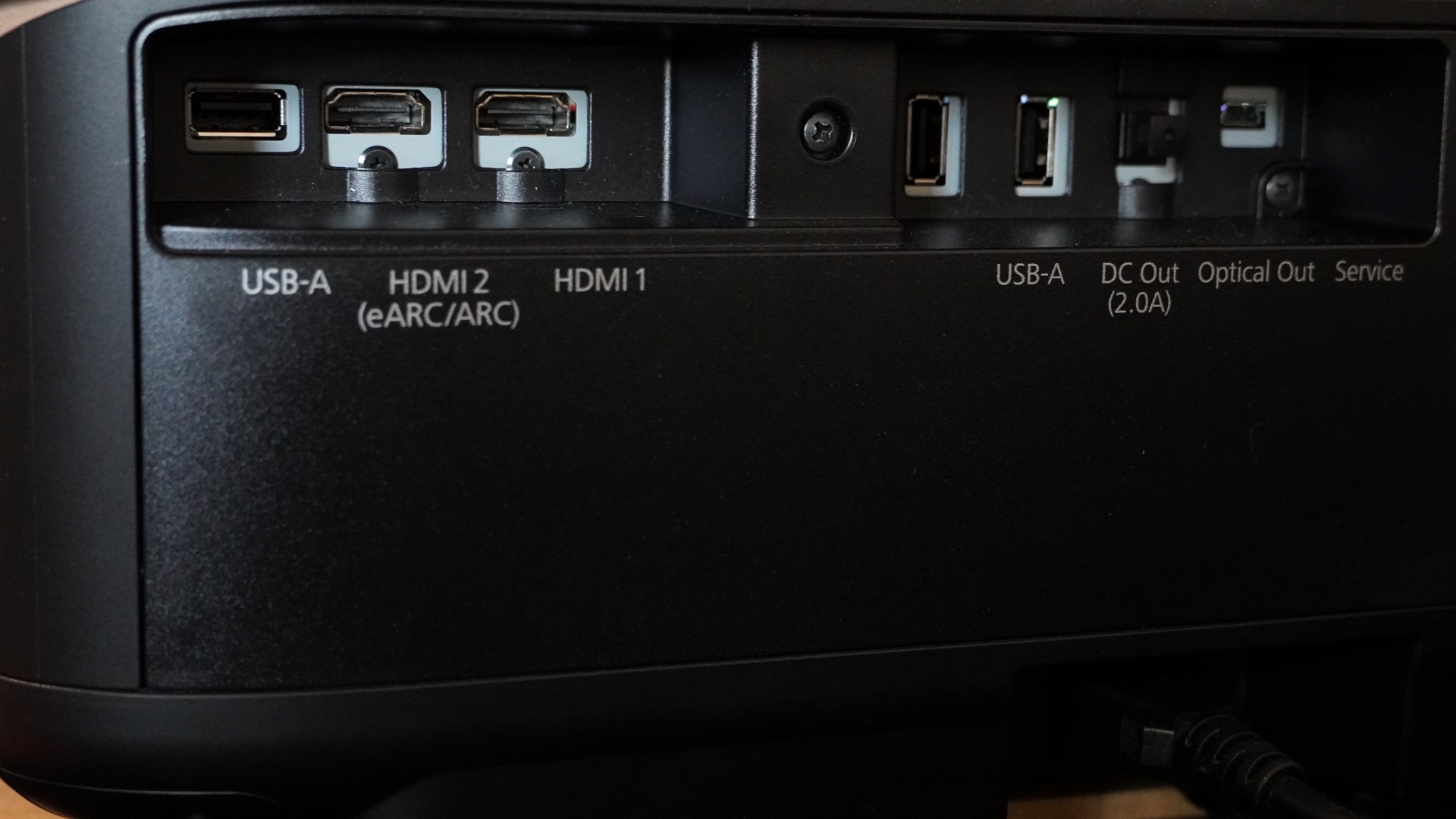
Epson EpiqVision Ultra LS650 review: value
- Price is good for projector this bright
- Squares up reasonably against competition
For its $2,799 price, the Epson EpiqVision Ultra LS650 is offering a good value. Thanks to its high brightness and respectable picture quality, it manages to serve as an alternative to bigger-screen 80- to 100-inch TVs, many of which command a price premium above the LS650. The limited HDMI ports and bad Android TV implementation hurt the LS650’s value a bit here by making the system less flexible and convenient, but it’s still a strong option.
- Value score: 3.5/5
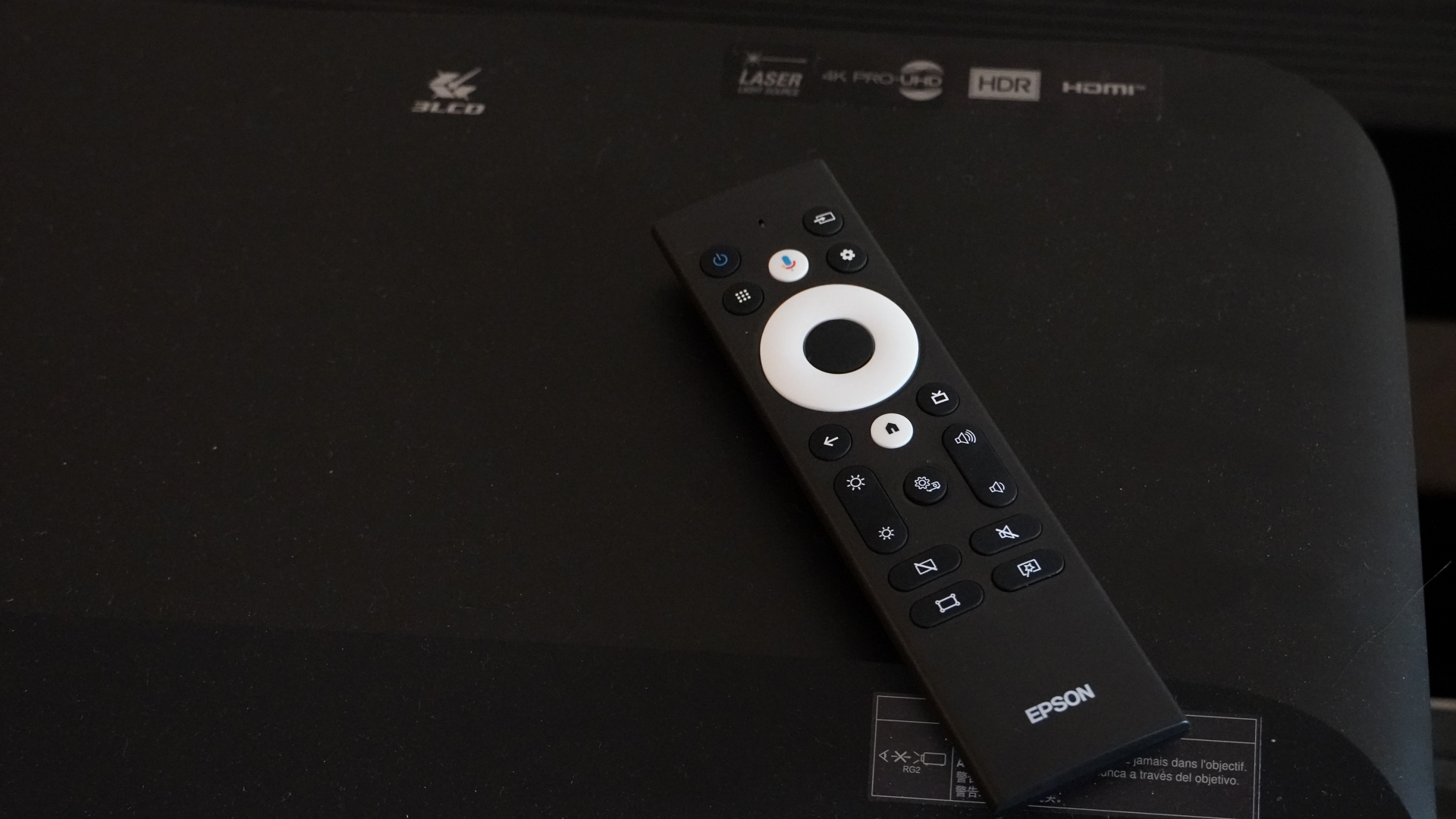
| Attributes | Notes | Rating |
|---|---|---|
| Design and features | The Epson doesn’t have an attractive design, and it’s lacking both ports and a good smart TV system. But it does have capable speakers and a reliable focus dial. | 3/5 |
| Picture quality | With its high brightness, the Epson LS650 really holds up well in a lot of viewing conditions, though color isn’t as good as with some of its competition. | 4/5 |
| Value | The Epson LS650 has room for improvement, but it’s still a good deal. Its ability to beam a massive, bright image holds up well against plenty of projectors, and it’s cheaper than a lot of ultra-big TVs it can replace. | 3.5/5 |
Should I buy the Epson EpiqVision Ultra LS650?
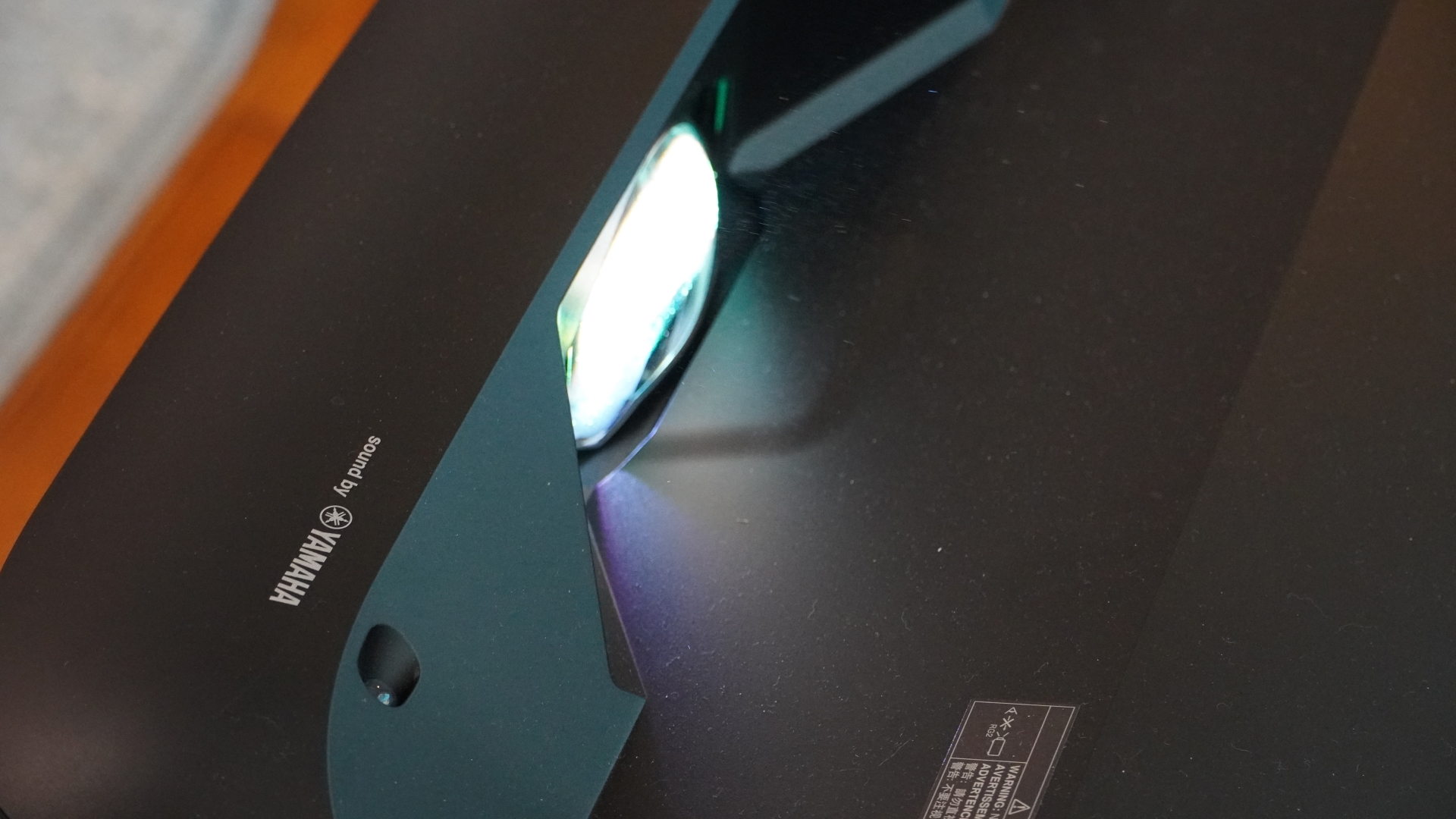
Buy it if...
You don’t like watching in the dark
The Epson LS650’s brightness makes it a winner if you don’t feel like turning all the lights off in your home theater room.
You want a portable UST projector
Epson’s UST is fairly easy to move around thanks to its compact, lightweight design. It can also quickly adjust focus in a new position, and has built-in speakers that will keep up in plenty of spaces.
Don’t buy it if…
You have a lot of different source devices
The Epson LS650’s two HDMI ports are quite limiting, especially since the projector’s built-in Android TV streaming system is unreliable.
You’ve got a light-controlled theater space
The Epson’s main advantage is its brightness, which allows it to be used in bright rooms. If you can make your room dark, you’ll get better performance from the similarly priced Hisense PX2-Pro.
Also consider...
| Epson EpiqVision Ultra LS650 | BenQ v5000i | Hisense PX2-Pro | Epson LS800 | |
|---|---|---|---|---|
| Price: | $2,799 | $3,499 | $2,999 | $3,499 |
| Screen sizes supported: | 60 to 120 inches | 80-100 inches | 90 to 130 inches | Up to 150 inches |
| Brightness (specified): | 3,600 lumens | 2,500 lumens | 2,400 lumens | 4,000 lumens |
| HDR support | HDR10, HLG | HDR10+, HDR10, HLG | Dolby Vision, HDR10, HLG | HDR10, HLG |
| Optical technology: | Laser 3LCD | 3 laser DLP | 3 laser DLP | Laser 3LCD |
| Smart TV: | Android TV | Android TV | Google TV / VIDAA | Android TV |
| Connections: | 2x HDMI 2.0 (1 with eARC), optical audio | HDMI 2.1, 2 x HDMI 2.0 (1 with eARC), 3.5mm audio out, optical audio out | 2x HDMI 2.0 (1 with ARC), HDMI 2.0 | 3x HDMI 2.0 (1 with ARC) |
BenQ v5000i
The BenQ v5000i isn't as bright as the Epson LS650, and it costs around $700 more. But if getting rich color with 4K HDR movies is important, the BenQ delivers on that front, and it's also a great UST projector for gaming.
Here's our full BenQ v5000i review.
Hisense PX2-Pro
The Hisense PX2-Pro costs around the same as the Epson LS650, but isn't as bright. Color rendition is better than what you get with the LS650, however, and it comes with a superior Google TV smart interface for streaming and voice control.
Here's our full Hisense PX2-Pro review
Epson LS800
The Epson LS800 uses a 3LCD laser light source to beam a stunningly bright 4,000 lumens image and it also has good built-in sound. It costs more than the Epson LS650, but it provides three HDMI ports to the LS650's two and its image is even brighter than what you get with the smaller Epson.
Here's our full Epson LS800 review
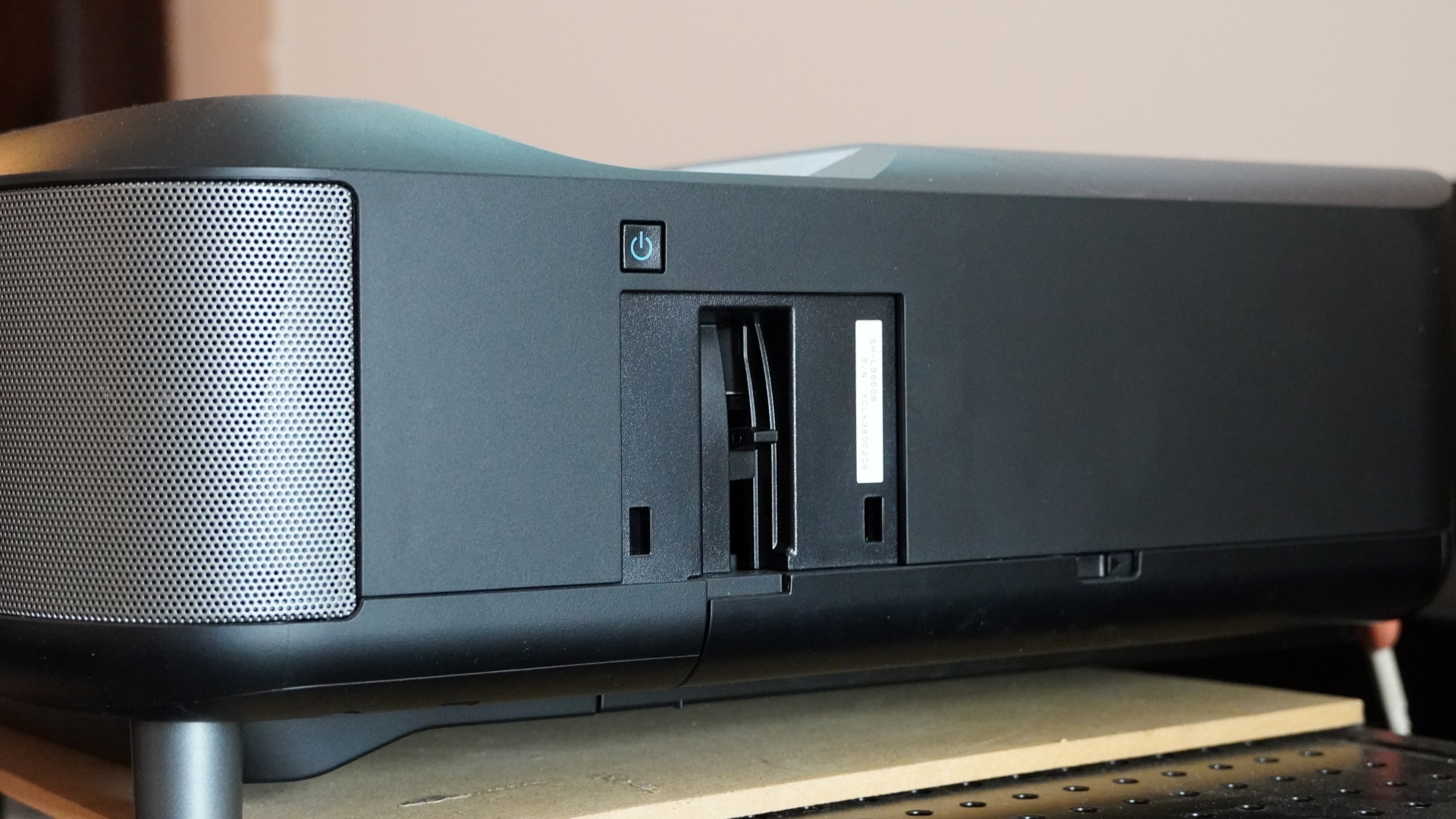
How I tested the Epson EpiqVision Ultra LS650
- Tested at home in multiple, real-world viewing conditions
- Presented the display with a variety of media and formats
- I have tested numerous projectors and displays over the last half-decade
I tested the Epson EpiqVision Ultra LS650 at home, in real-world conditions. This saw it faced with ambient light coming in from numerous windows, in-room lighting, as well as ambient noise that the projector’s speaker system had to overcome. The projector was tested both on a bare, white wall and with an Akia Screens CineWhite screen. It was presented with streamed content, HDR and non-HDR, and console gameplay.
My testing evaluates the projector’s performance with respect to its price and competition from other models I and colleagues at TechRadar have tested.
I have been testing projectors since 2021 and displays for even longer.
First reviewed: January 2024

Over the last several years, Mark has been tasked as a writer, an editor, and a manager, interacting with published content from all angles. He is intimately familiar with the editorial process from the inception of an article idea, through the iterative process, past publishing, and down the road into performance analysis.
